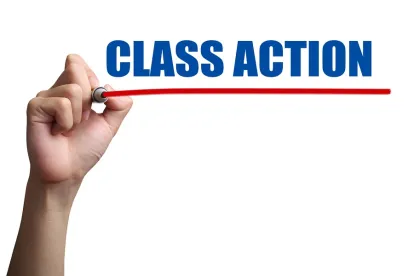As businesses scramble to adjust to new realities dictated by COVID-19, some corporate responses to state and local disaster declarations are giving rise to consumer class actions. Consumers have recently filed several class actions related to their inability to use or obtain a refund for services no longer offered following the implementation of government restrictions. Such lawsuits have been filed in the context of gym memberships, student housing, and festival tickets, among others. These class actions signal a new wave of potential COVID-19 litigation for which consumer-facing businesses should be mindful.
On March 26, 2020, one such putative class action was filed in the Southern District of New York against Town Sports International, LLC, the company operating the prominent gym franchise New York Sports Club (NYSC), for failing to suspend or credit membership fees during New York’s shutdown. The class action, Mary Namorato v. Town Sports International LLC, and Town Sports International Holdings Inc. d/b/a/ New York Sports Clubs, Case No. 1:20-cv-02580-VSB, alleges that NYSC continued to charge monthly membership dues after closing its gyms in accordance with New York State’s order to close all non-essential businesses.
The complaint claims that NYSC is "defrauding and stealing from customers” by “outrageously continuing to charge members their monthly membership dues, which are paid for one purpose and one purpose only,” to access the NYSC gyms. The complaint also alleges that NYSC has made it “virtually impossible for members to cancel their membership and has refused to honor many members’ cancellation requests,” citing to numerous recent Yelp! and Facebook reviews from NYSC customers in support of its allegation. The complaint asserts statutory claims for consumer fraud and breach of contract and seeks injunctive relief and damages that include membership dues and attorney fees.
Similar class actions also recently targeted other prominent gym franchises. Class actions were filed against 24 Hour Fitness in the Northern District of California on March 27, 2020 in Labib v. 24 Hour Fitness USA, Inc., Case No. 4:20-cv-02134, and against LA Fitness in the Southern District of Florida on March 30, 2020 in Barnett v. Fitness International, LLC, Case No. 0:20-CV-60658.
Another putative class action was filed on March 27, 2020 in the District of Arizona against the Arizona Board of Regents, the agency that governs Arizona State University, University of Arizona, and Northern Arizona University. The class action, Rosenkrantz v. Arizona Board of Regents, Case No. 2:20-CV-00613, alleges that the agency failed to offer refunds to students for unused portions of their fees for room and board or on-campus services no longer available after universities shifted to online learning.
The complaint refers to the universities’ actions as a “constructive eviction.” It alleges that although the agency’s decision to transition to online learning “were responsible decisions to make,” “it is unfair and unlawful….to retain fees and costs and to pass the losses on to the students and their families.” The complaint states that the agency “is, in essence, profiting from this pandemic.” The complaint asserts claims for breach of contract, unjust enrichment, and conversion and seeks “the return of prorated, unused portion of the fees paid, through the end of the semester” as well as attorney fees.
Yet another putative class action was filed in Los Angeles Superior Court on March 24, 2020 against the Do LaB, Inc., which organizes and runs the annual Lightning In A Bottle music festival in the Central Valley region of California. The organizer recently cancelled the festival, scheduled for Memorial Day Weekend 2020, due to government mandates prohibiting large public gatherings. The class action, Rutledge v. Do LaB, Inc., Temporary Case No. E124175132, alleges that the organizer improperly failed to issue refunds for festival tickets.
The complaint alleges that the terms and conditions, which contains the disclaimers “all sales are final” and “no refunds will be granted for any reason,” are unenforceable. It reasons that such disclaimers lack consideration because the defendant retained “complete and unfettered control to modify or terminate the agreement without assuming any obligations towards Plaintiff and the Class.” The complaint asserts claims for rescission, violation of California’s Consumer Legal Remedies Act, and violation of the California Business and Professions Code and seeks both damages and injunctive relief.
Companies with consumer-facing businesses should carefully consider their responses to business disruptions due to COVID-19 to minimize the risk of consumer class action litigation. Before deciding whether to continue charging customers or issue refunds, companies should carefully examine their agreements for terms regarding refunds, cancellation or termination policies, automatic billing arrangements, warranty and guarantee provisions, class action waivers, and arbitration agreements to understand the potential risk of class action litigation. Companies also, need to be mindful of any choice of law provisions in their agreements and enforceability of any of these types of contractual provisions as well as consumer claims of unconscionability, depending on the particular jurisdiction.





 />i
/>i
